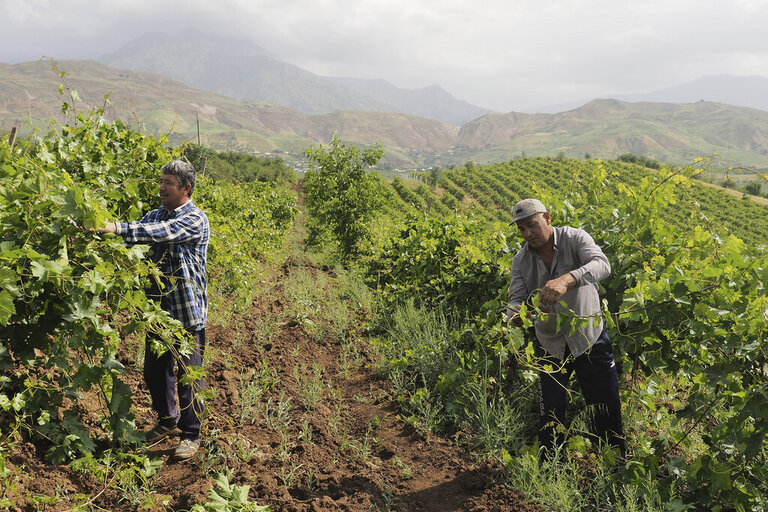The Almosi Valley, an integrated mountain agropastoral system in Tajikistan, has become the first Central Asian addition to the Globally Important Agricultural Heritage Systems, according to the Food and Agriculture Organization of the United Nations (FAO).
The system was formally designated under FAO’s flagship program during a meeting of the GIAHS Scientific Advisory Group held from 7 to 8 of July. The newest additions bring FAO’s worldwide agricultural heritage network to 99 systems in 29 countries. Along with the first for Tajikistan, the newly designated systems take the number in the Republic of Korea to nine and in Portugal to two.
The integrated agropastoral system in Tajikistan’s Almosi Valley combines seasonal transhumance of sheep with the cultivation of grapes, cereals, orchards, and vegetables across harsh mountain landscapes. Shaped over centuries, it supports food and livelihood security, conserves agrobiodiversity, and preserves cultural heritage. Rooted in ancestral knowledge, it sustains resilient communities facing soil erosion, water scarcity, and climate variability.
The valley hosts diverse ecosystems and a wide range of crops and livestock, including landraces of wheat, barley, and vegetables, and the local Hisori sheep. The Pink Toifi grape is central to the valley’s identity, valued for its quality and processed into raisins, syrup (shirini), juice, and wine.
The Almosi Valley agropastoral system is globally important as a living example of sustainable agriculture in harsh mountain ecosystems. It ensures food and livelihood security for nearly 59,000 people through diversified, year-round production.
The agropastoral system in the Almosi Valley faces increasing challenges linked to land degradation, limited access to water, and changing climatic conditions. Economic constraints and a lack of infrastructure make it difficult for families to access markets, services, and technologies. In addition, the transmission of traditional knowledge is weakening, as younger generations pursue livelihoods outside the agricultural sector. These pressures risk undermining the sustainability of a system that has long balanced human activity with fragile mountain ecosystems.
photo: FAO/Nozim Kalandarov




